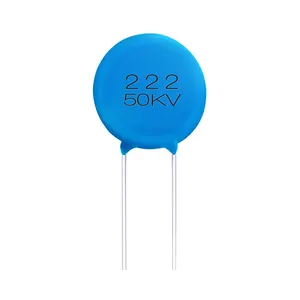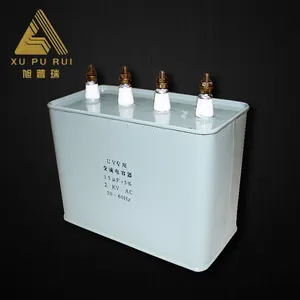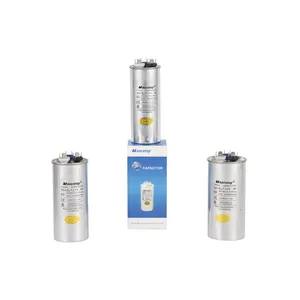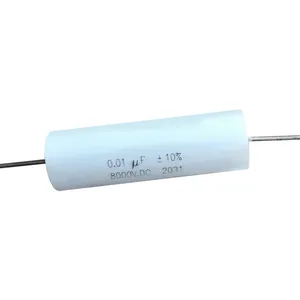Understanding Ultra High Voltage Capacitors
Ultra high voltage capacitors are specialized components designed for applications requiring high voltage handling capabilities. These capacitors are essential in circuits where they store and release energy, ensuring stability and efficiency. Their unique construction allows them to operate at voltage levels significantly higher than standard capacitors, making them a critical component in power transmission and high-energy systems.
Types and Applications
The versatility of ultra high voltage capacitors is evident in their various types, each suited to specific applications. Film capacitors, for instance, are common for their robustness and reliability, handling a capacitance range that can extend from 5pF to over 100µF. In contrast, supercapacitors are distinguished by their superior energy storage capacity, often utilized in systems requiring rapid charge and discharge cycles. These capacitors play pivotal roles in power grids, medical equipment, and other high-stakes environments where consistent energy flow is paramount.
Features and Materials
The construction of an ultra high voltage capacitor involves materials that can withstand extreme electric fields. Dielectric materials used in these capacitors are chosen for their high breakdown voltage and low dielectric losses. Aluminum and tantalum are commonly used in electrolytic capacitors, which are preferred in DC circuits for their ability to smooth out power supply fluctuations. The supercapacitor, with its higher energy density, often employs advanced materials like activated carbon and metal oxides.
Capacitance and Energy Storage
Capacitance, the measure of a capacitor's energy storage potential, is a critical specification of ultra high voltage capacitors. These components are engineered to hold and discharge energy at precise intervals, a feature crucial for maintaining uninterrupted power supplies in high voltage systems. The capacitance value, coupled with the voltage rating, defines the energy a capacitor can store, directly impacting the performance of the system it is integrated into.
Advantages of Ultra High Voltage Capacitors
The primary advantage of using an ultra high voltage capacitor lies in its ability to maintain power quality and system stability. These capacitors contribute to the reduction of power interruptions, thereby enhancing the reliability of electrical systems. Additionally, their high energy density makes them suitable for applications requiring a compact energy storage solution that can quickly release large amounts of energy.
Selection and Sourcing on Alibaba.com
Alibaba.com hosts a comprehensive selection of ultra high voltage capacitors, catering to a wide range of industrial and commercial needs. The platform facilitates the connection between buyers and international suppliers, offering a diverse array of capacitor options to suit various project requirements. Prospective buyers can explore the listings to find capacitors that align with their specific application needs, ensuring their projects are equipped with the right components for optimal performance.











































 浙公网安备 33010002000092号
浙公网安备 33010002000092号 浙B2-20120091-4
浙B2-20120091-4